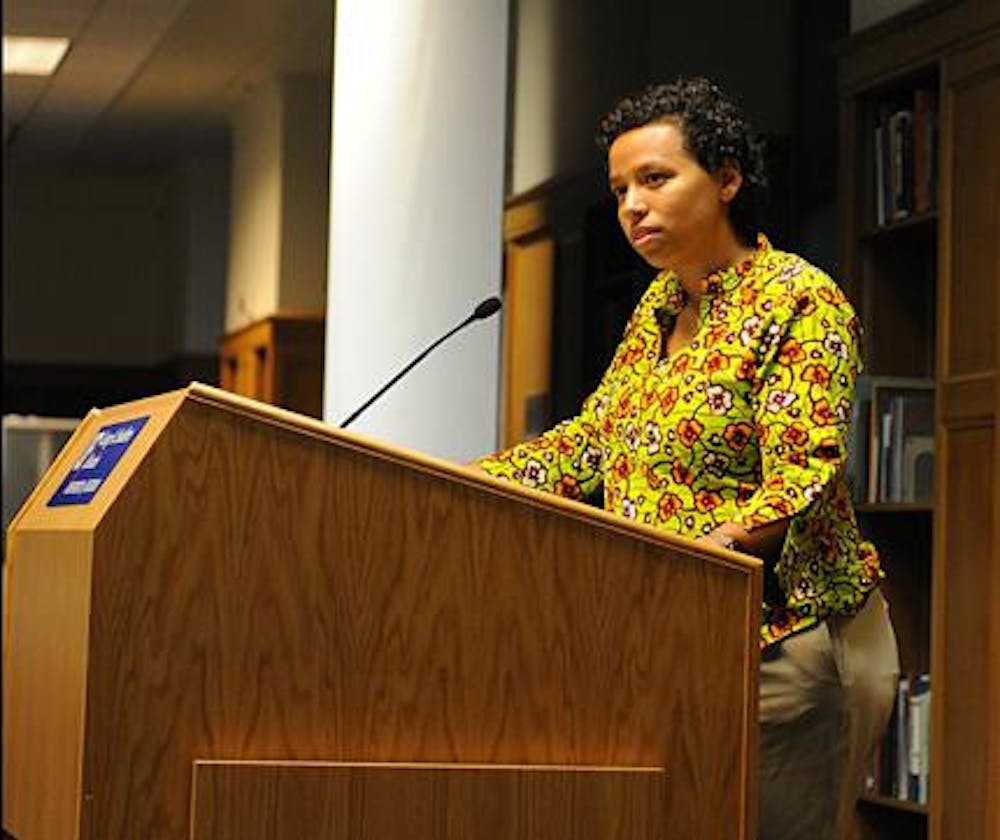Her driver would take her no further; he felt crossing the sandy riverbed that marked the border of Chad and Sudan, nations of central Africa, was for the foolhardy.
But Lydia Polgreen had to meet her sources on the other side, members of a rebel group operating out of Sudan with the goal of toppling Chad's government.
As the West African bureau chief for the New York Times, it was Polgreen's third or fourth trip to the area. She was piecing together a fractured and complex regional conflict and the rebels were another shard of the story. "One false step and you could easily find yourself in a world of trouble," she said to about 50 UF professors and students Thursday. Polgreen and her photographer crossed the riverbed on foot to meet their rebel contact, with whom neither shared a language.
Wordlessly, they climbed onto a truck overflowing with machine-gun-toting rebels.
"I sorta felt this little shiver of unease and thought 'I don't know about this'," she said. Sudanese soldiers quickly caught the rebels, along with Polgreen and her photographer, loaded them onto another truck and took them to the headquarters of a local security chief. When Polgreen tried to speak with her photographer, a rebel guarding her tapped his gun's trigger as a way of saying "be quiet."
"'This is it' I thought, 'my luck has run out'," she said.
She has been to mines policed by militants in the Congo rainforest where barehanded workers dig out metal for use in cell phones and computers.
But her work isn't always at personal risk. Recently, she wrote about a plague of caterpillars which gobbled up the crops of Liberia.
When she finally met the Sudanese security chief, Polgreen was surprised.
Instead of throwing her into jail, not an uncommon fate for journalists in Sudan, he discussed local politics with her at length in broken English.
Afterwards, he gave Polgreen a large meal and had soldiers drop her back at the border. Often, when a journalist finds the answer that they've been searching for at the "ends of the earth," it's not what they thought it was going to be, she said.
"That's what happened to me on the border of Chad and Sudan," she said.
Polgreen's talk was sponsored by the Center for African Studies. No fee was set but Leonardo Villalón, the director of the center, expects that she will be paid a few hundred dollars to help with travel expenses, he said.
She is in the United States preparing for her new assignment in India.






